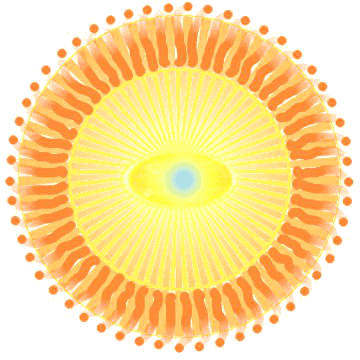The Posture Depression Connection Part 1: Depression Is Not A Biochemical Problem
- Sep 14, 2016
- 3 min read
I'm going to discuss a subject that is a bit of a sensitive subject, the topic of depression. Over the years, I have worked with a number of people who have dealt with depression. If you've seen any of my other content articles, you realize that the work that I do is different, consequently my point of view on depression might be fairly unique. A lot of people within my practice have found this viewpoint very helpful so hopefully you will, too.
Every person that I have ever worked with who has suffererd from depression has had a very similar posture. The way that that shows up in the body is that the front of the body is closed off and the spine is rounded where there is built up tension behind the heart. The reason that posture matters where depression is concerned is because there's a direct relationship between our posture and our emotional state. As an illustration, You might have seen a person with their head down as well as a slouched posture and assumed, without much thought, that they are having a difficult time. If you see a person sitting in their vehicle and their head is thrust forward, there is a good chance that they are mad. You may have seen somebody with their chest lifted high, their head back and their arms lifted and not thought twice about the fact that they were in high spirits.
Regrettably, physical posture isn't something that a person can just change simply by holding themselves differently. This posture has in all probability been that way for a long time since the defensive mechanisms that produced this posture started when we were within the womb, when we were babies and when we were young kids. The bones, the joints and the ligaments have changed shape during that time. So a certain posture is supported by the tremendous inertia of structural components that have been a certain way for quite a while.
Part of what's happening with our posture is that our nervous system has used posture to redirect energy. Ideally, the energy that flows up from the planet ought to pass through our legs, through our hips, through our heart and out of our crown and have the ability to circulate back around. In cases where the posture is slouched and there's tension being held in the area of the heart, the energy is being redirected back down before it reaches up to the heart given that our nervous system has determined that it's unsafe to allow that energy to flow through the heart.
This structural and energetic situation is directly coupled to the feelings that we can and can not experience. Despondency, dejection, feelings of inadequacy and hopelessness is the direct result of this slouched posture. These emotions possess a heaviness that is driving us downward. Those emotions are being supported by a certain posture.
There's a lot of momentum there and it's actually when we begin to resist moving toward those emotions that we 'suffer' from depression. I can totally understand why someone would resist being forced into those emotions. This, however, is when those emotions develop into a problem, if we resist their gravity.
This is because of the fact that the body is actually trying to show us the solution. Since there's such a strong pull towards the emotion, one option would be to allow yourself to go toward the emotions. Eventually one would have a complete experience of the feelings, thoughts and sensations and be freed from the depression. A person would be released as a result. The depression dissolves as the sense of self is integrated. Subsequently energy would start to rise up the spine to be assimilated by the heart, as well as naturally change the shape of the spine.
In his two best selling books, A New Earth and The Power Of Now, Eckhart Tolle describes how he had a complete experience of his depression and was totally released by it. The pain-body is another useful issue that Tolle speaks about in his book. The pain-body pertains to that part of us that is actually getting something out of the depression. If you're having trouble with depression, Tolle's book would be very beneficial.
So one option is to go in the direction of the depression. It's probably unrealistic, however, if you've got kids, a job as well as a spouse, and not recommended unless you have the necessary skills, past experience and support. Fortunately it's not the only option and it's not the whole picture. In subsequent content articles I will be talking more about that larger picture and the other options.
#posture #depression #alternativechiropractor #breathing #chiropracticcare #chiropracticlouisvilleco #chiropracticoffice #chiropractor80027 #chiropractorsinlouisville #emotionalpain #emotions #jayuecker #louisvillecochiropractor #networkcare #networkchiropractic #networklifecenter #networkspinalanalysis #videos #chiropracticboulder #alternativehealing #boulder #broomfield #chiropractic80304 #chiropracticboulder #chiropractorsinboulder #denver #healingchiropractor #longmont #superior #westminster #posturedepression #posturevideos #drjay








































Comments